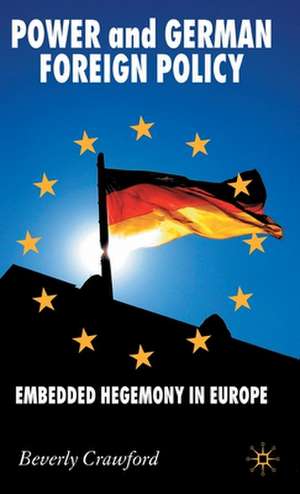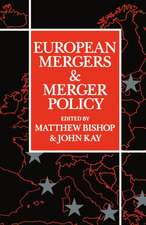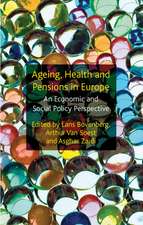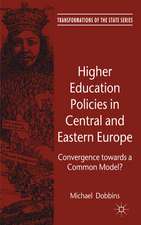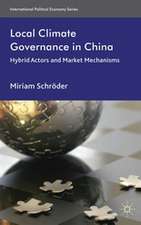Power and German Foreign Policy: Embedded Hegemony in Europe: New Perspectives in German Political Studies
Autor B. Crawforden Limba Engleză Hardback – 28 sep 2007
| Toate formatele și edițiile | Preț | Express |
|---|---|---|
| Paperback (1) | 636.12 lei 6-8 săpt. | |
| Palgrave Macmillan UK – 28 sep 2007 | 636.12 lei 6-8 săpt. | |
| Hardback (1) | 640.55 lei 6-8 săpt. | |
| Palgrave Macmillan UK – 28 sep 2007 | 640.55 lei 6-8 săpt. |
Din seria New Perspectives in German Political Studies
-
 Preț: 384.31 lei
Preț: 384.31 lei -
 Preț: 391.61 lei
Preț: 391.61 lei -
 Preț: 410.07 lei
Preț: 410.07 lei -
 Preț: 389.70 lei
Preț: 389.70 lei - 15%
 Preț: 643.00 lei
Preț: 643.00 lei -
 Preț: 387.75 lei
Preț: 387.75 lei - 15%
 Preț: 637.93 lei
Preț: 637.93 lei - 15%
 Preț: 642.68 lei
Preț: 642.68 lei -
 Preț: 386.39 lei
Preț: 386.39 lei - 15%
 Preț: 644.49 lei
Preț: 644.49 lei - 15%
 Preț: 648.24 lei
Preț: 648.24 lei -
 Preț: 388.72 lei
Preț: 388.72 lei -
 Preț: 390.63 lei
Preț: 390.63 lei -
 Preț: 390.25 lei
Preț: 390.25 lei -
 Preț: 389.70 lei
Preț: 389.70 lei -
 Preț: 390.63 lei
Preț: 390.63 lei - 15%
 Preț: 643.65 lei
Preț: 643.65 lei - 15%
 Preț: 643.84 lei
Preț: 643.84 lei -
 Preț: 384.86 lei
Preț: 384.86 lei -
 Preț: 390.63 lei
Preț: 390.63 lei - 15%
 Preț: 641.03 lei
Preț: 641.03 lei -
 Preț: 387.38 lei
Preț: 387.38 lei -
 Preț: 389.49 lei
Preț: 389.49 lei -
 Preț: 393.52 lei
Preț: 393.52 lei -
 Preț: 385.84 lei
Preț: 385.84 lei - 15%
 Preț: 638.11 lei
Preț: 638.11 lei - 15%
 Preț: 639.73 lei
Preț: 639.73 lei - 15%
 Preț: 638.43 lei
Preț: 638.43 lei -
 Preț: 384.70 lei
Preț: 384.70 lei -
 Preț: 389.31 lei
Preț: 389.31 lei - 15%
 Preț: 641.71 lei
Preț: 641.71 lei -
 Preț: 389.11 lei
Preț: 389.11 lei
Preț: 640.55 lei
Preț vechi: 753.60 lei
-15% Nou
Puncte Express: 961
Preț estimativ în valută:
122.59€ • 127.65$ • 103.60£
122.59€ • 127.65$ • 103.60£
Carte tipărită la comandă
Livrare economică 10-24 martie
Preluare comenzi: 021 569.72.76
Specificații
ISBN-13: 9780230521087
ISBN-10: 0230521088
Pagini: 240
Ilustrații: XII, 240 p. 8 illus.
Dimensiuni: 140 x 216 x 19 mm
Greutate: 0.42 kg
Ediția:2007
Editura: Palgrave Macmillan UK
Colecția Palgrave Macmillan
Seria New Perspectives in German Political Studies
Locul publicării:London, United Kingdom
ISBN-10: 0230521088
Pagini: 240
Ilustrații: XII, 240 p. 8 illus.
Dimensiuni: 140 x 216 x 19 mm
Greutate: 0.42 kg
Ediția:2007
Editura: Palgrave Macmillan UK
Colecția Palgrave Macmillan
Seria New Perspectives in German Political Studies
Locul publicării:London, United Kingdom
Cuprins
Introduction: A Teutonic Shift? Explaining Post-Wall Change in German Foreign Policy Diplomacy and Military Policy in the Balkans: From Recalcitrant Partner to Cooperative Leader Foreign Economic Policy in Europe: From Rule-Maker to Rule-Breaker in European Monetary Union Security: Why Germany Built and Led Europe's Export Control Regime Conclusions and Prospects for the Future of German Foreign Policy Appendix: Figures and Tables
Recenzii
'From the first page, Crawford's seductively written book grabs readers like a powerful novel. Its main value, however, and the main reason it will leave a lasting mark, is its unique and important explanation of German foreign policy, which bridges the systemic-foreign policy divide. Suggesting that Germany's foreign policy has been characterized by the embedding of power in international institutions, Crawford's book is a must read for everyone interested in Germany's latest transformation and in innovative International Relations theory.' - Emanuel Adler, Andrea and Charles Bronfman Chair in Israeli Studies, University of Toronto, Canada
'Beverly Crawford's book offers a powerful and provocative argument which challenges much of the received wisdom about the foundations of and prospects for Germany's role in Europe and beyond. While most scholars continue to maintain that the core of post-unification German foreign policy remains basically unchanged, Crawford observes in that policy a tectonic shift. Elegantly synthesizing realist and liberal theory she provides an original argument that Germany may indeed be regarded as both a liberal and highly self-interested European hegemon. Even those readers who won't fully accept the argument will be impressed by its subtlety and the evidence presented.' - Gunther Hellmann, Professor of Political Science, Johann Wolfgang Goethe University, Frankfurt am Main, Germany
'What shapes German foreign policy? BeverlyCrawford asks important questions and gives cogent answers. Rather than merely describing policy outcomes, she explains them.' - Kenneth N. Waltz, Senior Research Scholar, Institute of War and Peace Studies, Columbia University, USA
'Beverly Crawford's book offers a powerful and provocative argument which challenges much of the received wisdom about the foundations of and prospects for Germany's role in Europe and beyond. While most scholars continue to maintain that the core of post-unification German foreign policy remains basically unchanged, Crawford observes in that policy a tectonic shift. Elegantly synthesizing realist and liberal theory she provides an original argument that Germany may indeed be regarded as both a liberal and highly self-interested European hegemon. Even those readers who won't fully accept the argument will be impressed by its subtlety and the evidence presented.' - Gunther Hellmann, Professor of Political Science, Johann Wolfgang Goethe University, Frankfurt am Main, Germany
'What shapes German foreign policy? BeverlyCrawford asks important questions and gives cogent answers. Rather than merely describing policy outcomes, she explains them.' - Kenneth N. Waltz, Senior Research Scholar, Institute of War and Peace Studies, Columbia University, USA
Notă biografică
BEVERLY CRAWFORD teaches Political Economy at the University of California at Berkeley, USA, and is the Associate Director of UC Berkeley's Institute of European Studies. She is the author of Economic Vulnerability in International Relations and editor and co-editor of numerous volumes and articles on Ethnic Conflict, European Integration, German politics, and Post-Communist Transition She has also written extensively on technology transfer strategy in Eastern Europe, Export Control regulation in the United States and Europe, and German politics and foreign policy. She has held Visiting Professorships at Bocconi University in Milan Italy, the Free University of Berlin, and the Technical University, Dresden.
